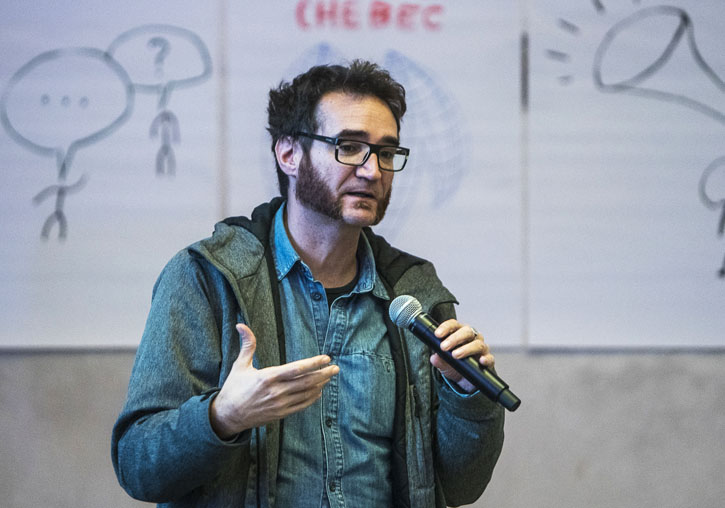75% of Valencian cultural agents fear loss of income due to COVID-19, according to a report by the Universitat.
- Tarongers Institutes Support Unit
- July 24th, 2020

The impact of COVID-19 mainly became noticeable in the second quarter of 2020. 75% of Valencian cultural agents fear significant economic losses, according to a report by the research group on Economics of Culture (Econcult) from the Universitat de València. It was presented and conducted by professor Raúl Abeledo.
Abeledo explains that the main purpose of the report “is to analyse both the short and medium-term impact of COVID-19 on València’s cultural sector, the study of the different adaptation strategies developed by cultural agents, as well as the assessment of the role played by public aid and the identification of the proposals suggested by the cultural organisations in order to overcome the economic crisis”.
The main source of information that has enabled the quantitative analysis of the current situation was the design of a detailed survey by the Econcult. This survey was available from 16 April to 17 May 2020 and received a total of 410 answers by organisations and Valencian cultural agents.
The number of cultural agents who expect economic losses in the estimate of revenue rises to 75.37%. Additionally, the increase in survey respondents that affirm that are awaiting losses greater than 75% of the incomes has significantly raised till almost the half of what was expected (45.37%). Only 4.63% of the cultural agents stated that they would not be expecting losses in the second semester.
Virtually all survey respondents (92.93%) state that, in the long term, they will be affected by the lockdown measures and this will slightly have impact an impact on the incomes or lead to the organisation’s closure. Only 9.51% respondents consider this impact as small since they could easily adapt to the new situation of social distancing.
Furthermore, almost the half of the ones polled (45.85%) value the impact as significant in the long term, which will lead them to workforce reduction in order to move forward and, consequently, the loss of cultural occupation.
In relation with staff adjustment, cultural management (40%) and books, literature and reading (23,53%) stand out as the most damaged subsectors. Nonetheless, the smallest percentages are visual arts (9.59%) and other disciplines (9.30%).
With regard to the implementation of teleworking, subsectors such as design & applied arts (66,67%) and cultural management (60%) have opted for this option the most. At the opposite end are performing arts, in which the percentage drops to 34,53%. In reference to the increase in digital inversion, the highest values correspond to cultural management (46.67%) while the lowest are in design and applied arts (16,67%).
In order to tackle the crisis, the respondents’ favourite measure is a comprehensive and systematic action through the creation of a strategic plan to promote the recovery of the cultural and creative sectors. Now, more than ever, it is essential that Generalitat Valenciana updates and adapts the current Valencian Cultural Strategic Plan - Fes Cultura (2016-2020) to the challenges that COVID-19 determines in its main five lines of action: industrialisation and consolidation of cultural and creative sectors; territorialisation; interinstitutional cooperation; internationalisation; democratisation and culture access. The second most valued measure is the increase in public procurement by cultural organisations, such as the funding of cultural projects or open calls for proposals. The third most valued measure by respondents is financial support for the solvency of organisations such as loans or grants.
The report’s origin is an initiative by the Econcult within the framework of the Interreg MED “Chebec” European project, whose purpose is promoting the internationalisation strategies of the agents and cultural organisations within the Mediterranean regions (https://chebec.interreg-med.eu). It has been attended by Raúl Abeledo, researchers María Sendra and Guillem Bacete as well as by the documentary maker, Fernando Álvarez.
More information:
File in: Cultura , Recerca, innovació i transferència
















